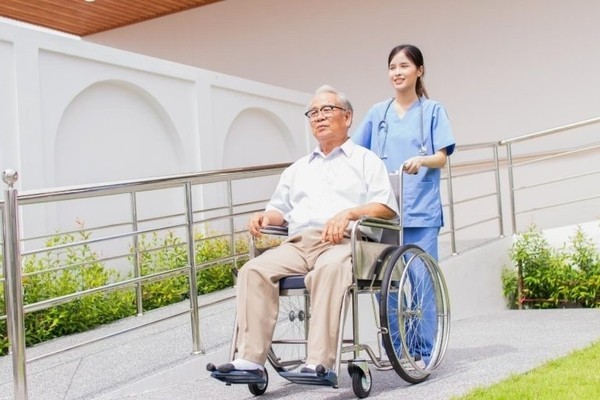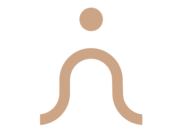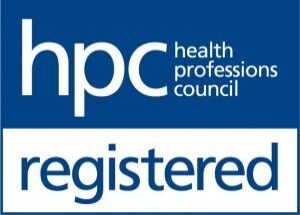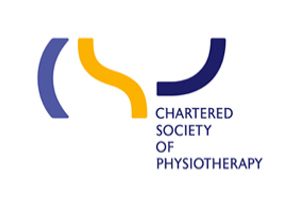
posted 2nd June 2025
Stroke Physiotherapy London: Stroke Recovery at Home with Estuary Physio
Benefits of Stroke Physiotherapy for Stroke Patients in Essex & East London
Recovering from a stroke is a life-changing process that often requires months, if not years, of rehabilitation, support, and adaptation. A stroke is caused when a blood clot or haemorrhage in the brain cuts off the blood supply to part of the brain. While traditional clinic-based physiotherapy can be effective, many stroke survivors and their families are discovering that home physiotherapy offers a more personal, flexible, and functional approach to recovery. Physical therapy, especially neurophysiotherapy, is an essential part of stroke rehabilitation, playing a crucial role in helping individuals regain function and independence. London offers many top-tier rehab clinics for stroke recovery, including dedicated stroke rehab services that provide tailored, multidisciplinary, and home-based neurological rehabilitation for stroke survivors. At Estuary Physio, we deliver expert physiotherapy services directly to your door across Essex and parts of London, making rehabilitation more accessible and tailored to everyday life.
We provide a personalised approach and personalised care, ensuring expert care is delivered in the comfort of your own home. Our neuro physiotherapy services address a wide range of neurological conditions, not just stroke, offering specialised rehabilitation for conditions such as Parkinson’s disease, multiple sclerosis, and brain injuries.
Familiar Surroundings Aid Recovery
For many stroke survivors, even the act of leaving the house can feel overwhelming. Travel can create additional fatigue, stress, or even physical barriers, particularly in the early stages of recovery. Home-based physiotherapy eliminates that burden — patients remain in a space where they feel safe and comfortable. This supportive environment helps patients recover mobility, strength, and independence after a stroke, as therapy is tailored to their needs in familiar surroundings. That sense of emotional security often translates into greater relaxation, better focus during sessions, and improved confidence in the exercises being practised.
For individuals with cognitive challenges or aphasia after stroke, the consistency of being in their own environment can significantly aid memory, orientation, and engagement with therapy tasks.
Understanding Stroke Impairments and Physiotherapy's Role
Stroke can manifest in various ways, leading to a wide range of physical, cognitive, and emotional impairments. There are two main types of strokes: ischemic and hemorrhagic. The symptoms of a transient ischemic attack (TIA) are similar to those of a stroke, but last only a few minutes or hours. Symptoms after stroke can vary in severity, making early recognition and an initial assessment by neuro physiotherapists and health professionals essential for effective recovery. Estuary Physio's neuro physiotherapists have expertise in treating a wide range of neurological conditions, including Parkinson's disease, multiple sclerosis, brain injuries, traumatic brain injury, spinal cord injury, spinal cord injuries, cerebral palsy, and Guillain Barre syndrome. Effective physiotherapy is crucial for addressing these diverse challenges and maximizing recovery.
Motor Impairments (Weakness and Paralysis)
One of the most visible effects of stroke is weakness or paralysis (hemiparesis or hemiplegia) on one side of the body. This can affect the arm, leg, and facial muscles, making everyday tasks incredibly difficult. Many patients experience weakness after stroke, and the treatment plan is tailored to address this.
Our physiotherapists employ targeted exercises to:
- Improve Muscle Strength and Control: Through exercise therapy, repetitive movements, resistance exercises, and functional tasks, we use a variety of treatments to treat and improve muscle strength and coordination. Exercise and exercise therapy are essential components of the recovery process. High intensity therapy is key to regaining function after a stroke, with frequent sessions recommended.
- Manage Muscle Spasticity: Stroke can lead to muscle spasticity, a condition where muscles become stiff and tight. Muscle spasticity can also cause pain and discomfort. We use hands on therapy, stretching, positioning, and other treatments to reduce spasticity, manage pain, and improve range of motion.
- Enhance Fine Motor Skills: For hand and arm recovery, we incorporate exercises that focus on dexterity and precision, crucial for tasks like dressing, eating, and writing.
- Improve Balance and Coordination: Neurophysiotherapy aims to improve balance and coordination through exercise therapy to reduce the risk of falls.
Balance and Coordination Issues
Damage to parts of the brain responsible for balance can lead to unsteadiness, increased risk of falls, and difficulty walking. Our home physiotherapy includes:
- Balance Training: Progressive exercises, often using everyday objects, to challenge and improve stability in various positions (sitting, standing, walking).
- Gait Re-education: We work on improving walking patterns, stride length, and symmetry to enhance safety and efficiency of movement. This often involves practicing walking on different surfaces and navigating obstacles found in the home environment.
Sensory Impairments
Stroke can affect sensation, leading to numbness, tingling, or altered perception of touch, temperature, or position. While physiotherapy primarily focuses on motor recovery, sensory re-education techniques can be incorporated to help the brain relearn how to interpret sensory information.
Fatigue Management
Post-stroke fatigue is a common and often debilitating symptom. Our therapists help patients manage their energy levels by pacing activities, teaching energy conservation techniques, and structuring rehabilitation sessions to avoid overexertion, ensuring sustainable progress.
Real-Life Function in Real-Life Spaces
One of the biggest advantages of home physiotherapy is the ability to work directly on meaningful, everyday tasks. Instead of practising transfers in a generic clinic chair or walking down polished corridors, we help patients:
- Get up from their own favourite chair or bed
- Navigate the steps at their front door
- Move safely in tight kitchen spaces or hallways
- Transfer confidently in and out of their shower or bath
This task-specific practice improves both physical ability and long-term confidence. We're not just building strength — we're building independence.
One on One, Personalised Attention
In a clinic, therapists often juggle multiple patients or follow standardised protocols. At home, all of our attention is on one person — you. Personalised treatment plans are developed based on assessment findings, tailored to each patient's unique needs and goals. We adapt each session to your current needs, how you’re feeling on the day, and how you’re progressing week to week.
Our expert care team delivers a personalised approach and personalised care, working together to create tailored rehabilitation plans that ensure high quality outcomes for every individual.
If you’re tired, we pace the session. If you’re improving quickly, we challenge you more. Every movement, goal, and plan is personalised. That kind of continuity and flexibility is difficult to replicate in a traditional outpatient setting. Learn more about our neurological physiotherapy services.
Empowering Carers and Family
Stroke recovery rarely involves just the patient — it often involves spouses, children, and carers too. With home physio, we can involve family members in a more hands-on way, offering:
- Guidance on safe support techniques
- Advice on mobility aids and home adaptations
- Education on what to expect as recovery evolves
- Support with carer wellbeing and fatigue
We are also supporting patients and families with lifestyle changes and health management after stroke, such as assistance with smoking cessation and reducing alcohol consumption.
Having a physio come into the home creates a more holistic rehab experience — we’re not just helping someone walk better, we’re helping the whole household function better.
Fewer Missed Appointments, More Consistent Progress
Clinic sessions are often missed due to poor weather, transport issues, illness, or post-stroke fatigue. With home visits, those barriers are removed — and that means fewer interruptions to recovery.
That consistency allows us to build momentum, track improvements more accurately, and adapt your rehab plan in real time. It’s a more sustainable way to make progress and maintain motivation.
Booking an appointment for home physiotherapy is simple and flexible, making it easier for patients to access care.
Holistic Support - Physical, Emotional, and Environmental
Our approach to home physiotherapy takes the bigger picture into account. Yes, we focus on mobility, strength, balance, and coordination — but we also understand the emotional and psychological impact of stroke. Being treated in a familiar space with a trusted therapist can reduce anxiety, depression, and isolation — all of which are common after a stroke. Our holistic approach aims to improve not just physical health, but also emotional well-being and overall quality of life for stroke survivors.
We also assess your living environment during every visit, offering small suggestions to reduce fall risks, improve safety, and optimise independence. Sometimes the smallest tweak (like moving a rug or repositioning a handrail) can have a big impact. Our goal is to enhance your overall quality of life through comprehensive support and attention to your health and well-being.
Functional Exercises in Your Home Environment
One of the most powerful aspects of home physiotherapy is the ability to integrate rehabilitation directly into your daily routine and familiar surroundings. This means practicing exercises that are immediately relevant to your life, making them more engaging and effective. Here are some examples of functional exercises we might incorporate:
- Kitchen Mobility: Practicing reaching for items in cupboards, safely moving around counters, or transferring from a chair to the sink.
- Bedroom Independence: Working on getting in and out of bed independently, dressing, or navigating to the bathroom at night.
- Stair Negotiation: For those with stairs, safely practicing ascending and descending, focusing on balance and coordination.
- Outdoor Access: If appropriate, practicing navigating steps to the garden, walking on uneven surfaces, or getting in and out of a car.
- Personal Care: Improving balance and coordination for tasks like showering, bathing, or grooming at the sink.
By practicing in your actual living space, the skills you gain are directly transferable, building confidence and independence where it matters most.
Adapting to Phases of Stroke Recovery
Stroke recovery is a dynamic process, often categorized into acute, subacute, and chronic phases. Rehabilitation is a lifelong process for most stroke survivors, requiring dedication and patience. Home physiotherapy is uniquely positioned to adapt to these evolving needs:
- Acute Phase (First days to weeks): While often managed in a hospital setting, inpatient rehabilitation is typically the first stage of recovery before transitioning to home-based care. Early home visits can facilitate a smoother transition, focusing on basic mobility, preventing complications, and educating families.
- Subacute Phase (Weeks to months): This is a critical period for significant neurological recovery. Home physio during this phase focuses on intensive, task-specific training to regain lost function, improve strength, and enhance balance.
- Chronic Phase (Months to years onwards): Recovery continues long-term. Home physiotherapy shifts towards maintaining gains, preventing secondary complications, adapting to residual impairments, and integrating physical activity into a sustainable lifestyle.
This might include advanced balance exercises, community reintegration strategies, or managing fatigue. Our Stroke Physiotherapists in London and Essex continuously assess your progress and adjust your rehabilitation plan to ensure it remains challenging, relevant, and effective throughout your recovery journey. The goal of each phase is to maximise recovery and support your return to independence.
The Evidence for Home-Based Stroke Rehabilitation
Therapists focus on task-specific, repetitive training in home-based physiotherapy. Research consistently supports the effectiveness of home-based rehabilitation for stroke survivors. Research also demonstrates the high quality of home-based rehabilitation, showing that it leads to positive patient outcomes and improved standards of care.
A meta-analysis of data from 49 studies, for instance, showed that home-based rehabilitation had a moderate effect on physical function in home-dwelling patients with stroke [1]. Another study highlighted that functional and neurological outcomes improved similarly in both home-based and hospital-based rehabilitation groups, with patients managed at home often experiencing lower rates of complications [2].
This underscores that effective recovery doesn’t always require a clinic setting; often, the comfort and familiarity of home can be equally, if not more, beneficial.
Want to Know More?
If you or a loved one is recovering from a stroke and would benefit from personalised, expert stroke physiotherapy at home in areas like Southend, Benfleet, Rayleigh, Leigh-on-Sea, Basildon, or elsewhere in Essex, contact us today. We understand the challenges you're facing - and we're ready to help you take the next steps, one day at a time.
We cover homes across Essex and East London, including areas like Benfleet, Southend, Chelmsford, and more. Our physiotherapists offer flexible scheduling tailored to your needs.
In addition to physiotherapy, you may also find helpful emotional and peer support through the Stroke Association's local services.
The information on this page has been reviewed for accuracy by Barry Ford BSc MCSP, Physiotherapist.





